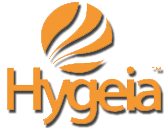
World Breastfeeding Week (WBW) is a time to celebrate the incredible benefits of breastfeeding and to advocate for policies that support breastfeeding mothers. But sometimes, the best way to understand the importance of something is to look at the numbers. Let’s dive into some key statistics that highlight why breastfeeding is so crucial for babies, mothers, and our world.
The Impact on Infant Health
Reduced infant mortality: Breastfeeding can reduce infant mortality by up to 13%. This means fewer babies die from preventable causes like diarrhea and pneumonia.
Protection against diseases: Breast milk contains antibodies that help protect babies from a range of illnesses, including ear infections, respiratory infections, and allergies.
Cognitive development: Studies have shown that breastfed babies tend to have higher IQs and better cognitive outcomes.
Stronger immune systems: Breast milk helps build a baby’s immune system, reducing the risk of chronic diseases later in life, as supported by the CDC, WHO, American Academy of Pediatrics, Cleveland Clinic, and others.
The Benefits for Mothers
Reduced risk of disease: Breastfeeding lowers the risk of numerous diseases, particularly some of those most prevalent in today’s society. This includes diseases such as breast cancer and ovarian cancer, type 2 diabetes, cardiovascular risk, bone health, and postpartum depression.
Cost-effective: Breastfeeding saves families money on formula as well as healthcare costs. Numerous groups, such as The Academy of Breastfeeding Medicine, have investigated the different aspects of savings that impact a family’s finances when they choose to breastfeed.
Bonding: Breastfeeding promotes bonding between mother and baby. The research is often considered complex and nuanced, but it is a long time supported belief by breastfeeding specialists.
Faster weight loss: Breastfeeding can help new mothers lose weight more quickly and return to their pre-pregnancy weight, particularly due to the fact breastfeeding burns extra calories, often contributing to weight loss. Postpartum hormones can also play a role in this benefit. La Leche League, Healthline and other sources offer articles and support on this topic; however, it is not a guaranteed form of postpartum weight loss.
The Global Picture
Inequalities: Breastfeeding rates vary widely across the globe, with disparities based on income, education, and geographic location. Globally, around 40-50% of infants are exclusively breastfed for the first six months and the median duration of breastfeeding is 12-23 months; however, in the U.S., only about 25% of infants are exclusively breastfed for the first six months with the average duration only around 8-12 months.
Economic impact: It is estimated that breastfeeding saves billions of dollars in healthcare costs globally.
Lives saved: The Cost of Not Breastfeeding Tool calculates that more than 515,000 lives could be saved each year if breastfeeding is protected, promoted, and supported in line with the World Health Organization’s (WHO) recommendations.
Sustainable development: Breastfeeding is a sustainable and environmentally friendly way to feed a baby. Since 2016, the WBW campaign has aligned its goals with the Sustainable Development Goals (SDGs) of the United Nations for this very reason.
These statistics paint a clear picture of the immense benefits of breastfeeding, and the fact that mothers across the globe need support in their journeys. That’s why Hygeia Health is committed to supporting mothers on their breastfeeding journey. Our high-quality breast pumps and educational resources are designed to make breastfeeding easier and more enjoyable.
It’s more than just nutrition; it’s an investment in the health and well-being of both mother and child. Despite the overwhelming evidence, many mothers face challenges in breastfeeding. Look to our next post in this series to dive into those challenges as we support moms through World Breastfeeding Week.

World Breastfeeding Week is here, running from August 1-7, and this year’s theme, “Closing the Gap, Support for All,” underscores the critical need to improve breastfeeding support and reduce inequalities.
At Hygeia, we know that breastfeeding is a cornerstone of child health and nutrition, yet countless mothers face challenges that hinder their breastfeeding journey. Throughout the upcoming week, we take a deep dive into the current state of breastfeeding awareness and the challenges that many mothers face as well as resources for overcoming those challenges. We will also provide some best practices for successful breastfeeding.
The Breastfeeding Gap
The proven benefits of exclusive breastfeeding are endless. The perfectly balanced nutrition source provides essential antibodies and nutrients that protect infants from a range of illnesses and can reduce infant mortality by up to 13%. The World Health Organization estimates that breastfeeding could save the lives of over 820,000 children under five years of age annually.
Unfortunately, breastfeeding rates vary significantly across the globe, with disparities evident among socioeconomic groups, ethnicities, and geographic locations. These disparities highlight the urgent need for targeted support to ensure all mothers have the resources and encouragement they need to breastfeed successfully, thus the theme of “Closing the Gap” for this year’s World Breastfeeding Week.
The Breastfeeding Challenge
New mothers often encounter significant hurdles in establishing and maintaining successful breastfeeding. Physical challenges such as sore nipples, insufficient milk supply, or baby latching difficulties can be overwhelming especially with many moms feeling a lack of support during that critical first week.
Societal pressures, including a lack of workplace support, inadequate maternity leave, and cultural norms that prioritize formula feeding, can also discourage breastfeeding and, again, create a lack of support even for those mothers who desire to breastfeed. Additionally, misinformation and limited access to lactation support can contribute to breastfeeding cessation.
Collectively, these situations and factors create a complex environment that makes it difficult for many women to achieve their breastfeeding goals.
Overcoming The Challenges
The good news? Many organizations and even individuals–moms like you–are dedicated to making breastfeeding less of a challenge for moms globally, thus the initiative of World Breastfeeding Week. This movement is initiated by the World Alliance for Breastfeeding Action (WABA), which is dedicated to the protection, promotion and support of breastfeeding worldwide. To address the challenges of breastfeeding, comprehensive support systems must be in place: education, counseling, and practical assistance.
Hygeia is excited to have more resources than ever available to support mothers with the launch of our new website. Not only does our parent blog offer new education on a weekly basis, but we also partner with Nest Collaborative to provide virtual breastfeeding consults accessible anytime, anywhere, covered by most insurance plans at no cost to you.
Breastfeeding Best Practices
Along with specialized support, knowing and understanding the best practices of breastfeeding can heavily impact a mom’s success and decision to stick with breastfeeding and reach her goals. Early initiation by breastfeeding within the first hour of baby’s life is the first step every mom should aim to achieve while also taking advantage of any on-staff lactation consultants at the hospital.
Moms should strive to breastfeed for the first six months with breast milk as the sole source of nutrition. Beyond that, babies will highly benefit from the breast milk nutrition for the next two years, but should also be introduced to complementary foods after six months of age. It is also imperative to build a strong support system as a breastfeeding mother. This includes family, friends, healthcare providers, and lactation consultants.
Commitment to Supporting Mothers
At Hygeia Health, we are dedicated to empowering mothers through high-quality breast pumps and comprehensive support. Our products are designed to make breastfeeding more comfortable and efficient, while our resources provide valuable information and guidance.
World Breastfeeding Week is an opportunity to raise awareness about the importance of breastfeeding and to advocate for policies that support breastfeeding mothers. Let’s work together to close the breastfeeding gap and ensure that every mother has the support she needs to nourish her baby through breastfeeding.


